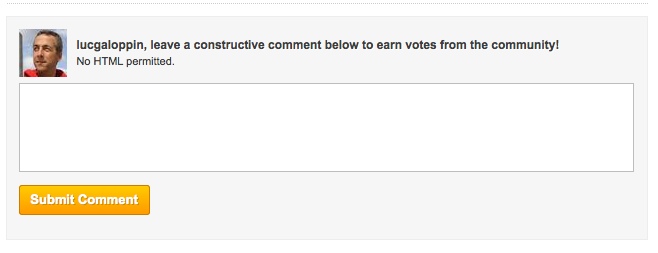If a game designer were to tackle resistance, we would be witnessing more carrots and less sticks. Managing ‘Killers’ is a matter of shaping the path. Direct their energy instead of fighting them.
In the below video we can see Gabe Zicherman, a gifted speaker and an authority in the world of gaming. The key concept in his speech is gamification – a word that my spell checker annoyingly keeps on resetting to ‘ramification’. My spell checker may be trying to give me a conservative hint in order not to get carried away with all of that stuff, but bear with me.
Zicherman describes gamification as ‘the use of game-thinking and mechanics to engage audiences and solve problems.’ He chooses gaming as a metaphor of interacting with the world, just in the same way as Shakespeare used the metaphor of a play. Today Shakespeare would probably state: “All the world’s a game”
Status
According to Zicherman, status is the one motivator that underpins all gaming dynamics. Point systems are important and the signaling function of a status is what drives a point system. The below drawing depicts the basics of such a point system.
Further to this point, Zicherman mentions Richard Bartle’s player types that have emerged from research on gamers since the 1980’s. He identifies four player types – Achievers, Explorers, Socializers, and Killers.
- Achievers will go to great lengths to achieve rewards that confer them little or no gameplay benefit simply for the prestige of having it.
- Explorers are playing for the social credit of having discovered something. They find great joy in discovering an unknown glitch or a hidden easter egg.
- Socializers are probably the biggest group making up about 80% of the population. According to Zicherman they are after ‘light-weight, non-confrontational easy-to-reciprocate social interactions with other people’. The game is merely a tool they use to meet others in-game or outside of it.
- Killers thrive on competition with other players in order to win at their expense.
How Game Designers Would Manage Resistance
Now here is where it gets interesting for Organizational Change Practitioners: recently Zicherman was asked by an online publisher how they should go about with “comment killers” on blogs and articles. Normally one would moderate those people or ban them. However, that is not how a game designer would approach this problem because according to Zicherman:
Killers are the most active and most engaged member of the community. They are just expressing their behavior in a bad way.
The right response from a game design perspective is to put a killer on rails. In other words: to shape their behavior by shaping the pathway they go down.
Knowing that killers want to be recognized as smart, we should make sure these commenters can earn status points by means of setting up an incentive system that is ‘more carrot’ and ‘less stick’, like a commenting system that shapes your commenting behavior by making it possible to gain points for constructive comments.
Examples of this include the Mashable standard commenting system (shown above) and the Disqus commenting system (shown below) that allow to display the status of your comments, both in quantity (number of comments) as in quality (number of ‘likes received).
I am sure that if we look through the same lenses to other cases of resistance, we could be helped a lot better by making our response to resistance less about sticks and more about carrots. Just bear in mind that most of the gen Y people who are entering our organizations now wear those lenses by default. We should learn to see gamers for what they really are: an asset for the future of our economy. Mark my words.







Pingback: Gamers Will Save Our Economy (Part 9) | Reply-MC()